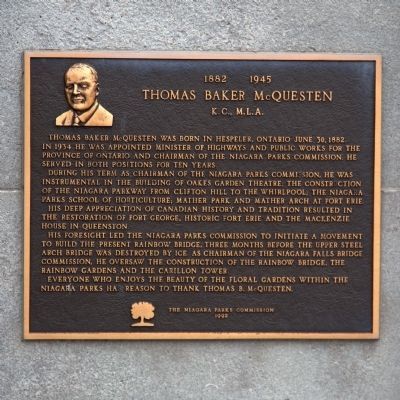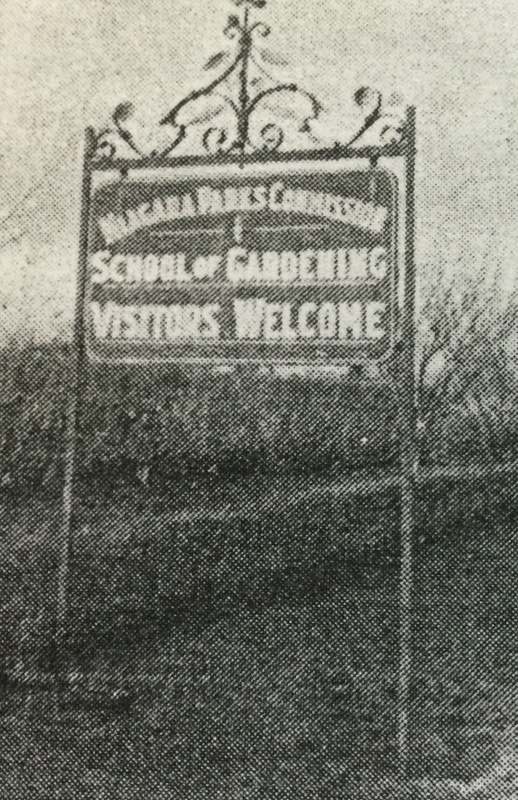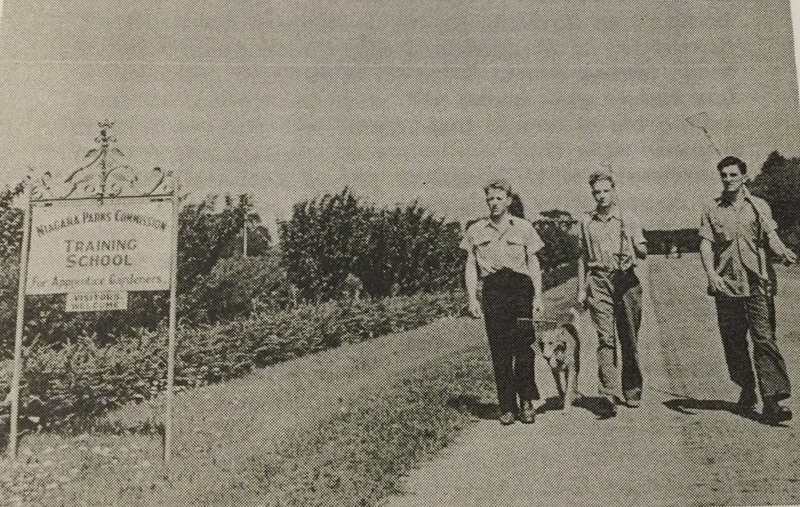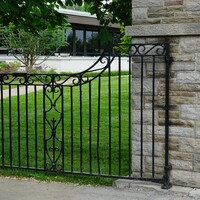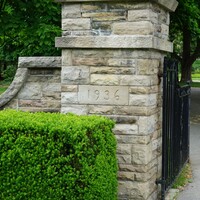Beginnings
As early as 1908, John H. Jackson, the Niagara Parks Superintendent suggested that a training program should be established for young gardeners within the parks. The Niagara Parkland has always required a great deal of maintenance, manpower, and knowledge to keep it healthy and beautiful. The idea was discussed many times over the years, but it wasn't until the Commissioner of the Niagara Parks Commission, Thomas McQuesten, approached K. M. Broman that the idea actually came into being. It was unanimously agreed by the Parks Commission that a school for apprentice gardeners should be built.
The Niagara Parks Commission's Training School for Apprentice Gardeners (as it was first called) opened in 1936. It is located on Niagara Boulevard about five miles downstream from Niagara Falls.
The School of Horticulture's program is not affiliated with the Provincial Ministry of Education. The Niagara Parks Commission is responsible for all aspects of the school. In 1919, the Commission purchased surplus land from the Hydro Electric Power Commission. A section of this land, across from the Niagara Glen became the site of the school.
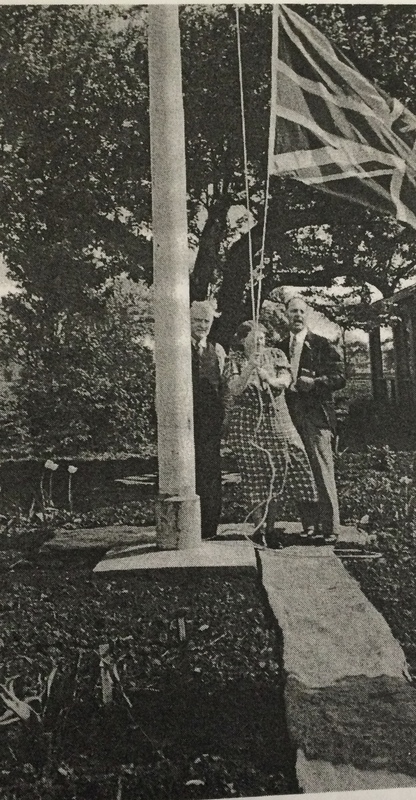
The first flag dedication with Mr. and Mrs. Leo Race and Matt Broman
Mrs. Race was the cook for the first winter and Mr. Race was the caretaker.
The 1930s were a time of economic depression and jobs were scarce. There had been a reduction in immigration, and it was through immigration that competent gardeners were generally acquired. The apprentice-style method of education is embraced by European countries but has not been as popular in North America. Professional gardening is a subject that is best taught in an apprentice type of situation.
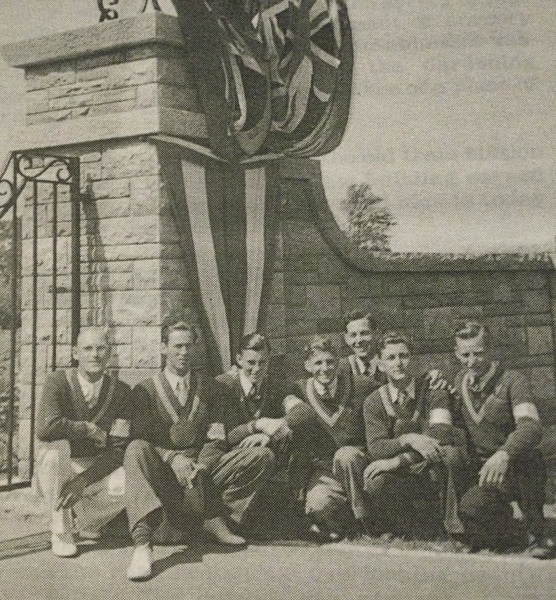
Class of ‘39
The class of '39 included: Pain, Waters, Martin, Halward, Beattie, McCracken & Holmes (L-R)
The main gate is still standing and '1936' is embedded on the left hand side. The lecture hall is visible from the right side of the gate.
